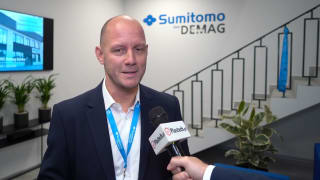Does the ColorForm process also contribute to sustainability?
Dr. Bourdon: Definitely. This process does away completely with the coating process that conventionally follows injection moulding. The main advantage, both economically and ecologically, is the massive reduction in rejects and hence greater efficiency in the use of materials. The normal coating process often produces a large number of rejects owing to impurities, for example. If you want to prevent that, you have to invest in very expensive equipment. Coating is also very expensive in terms of energy. You have to make the plastic part in any case, then you have to dry it with warm air in the paint shop. Using the ColorForm process avoids that.
Do not highly integrated processes carry the risk that any faults that occur are harder to put right?
Dr. Bourdon: We have basically the same problem with interlinked processes. If one unit fails, the whole plant ceases to operate. But if complex systems are to operate reliably it is important to have very good controls. That would include having the automation components already integrated into the machine. But we are also working on some very interesting process controls where certain disruptive factors, such as variations in the viscosity of the material, can be compensated by modifying the parameters.
What part do composites play in functional integration?
Dr. Bourdon: Fibre-reinforced plastics, whether using glass fibres or carbon fibres, have very good mechanical properties while at the same time being very light. This makes them suitable for a range of applications that cannot be covered to the same extent using plastics without composites. Functional integration comes into play when you combine this material-based lightweighting with design-based lightweighting. If a clever design is combined with the right material, I would call that successful functional integration.
KraussMaffei also produces its high-tech machinery in China. How great is the demand for these highly integrated, complex systems in that country?
Dr. Bourdon: We are seeing quite generally a trend towards ever more complex production cells. The level of automation is steadily increasing. In China, automation is already increasing today and it is only a question of time before highly complex automation is in demand there too.
But the Chinese themselves are going all out to develop high-tech machinery. Will foreign manufacturers have any opportunities there at all in the future?
Dr. Bourdon: There is something special about Central European suppliers. They understand customizing far better than anyone else. That is also one reason why a lot of Chinese customers like to buy European products. This special ability of tailoring products and processes precisely to customers’ requirements, and to do so efficiently and cost-effectively, is a characteristic of European suppliers that is not found in China. KraussMaffei has always been very process-driven. That is one reason why we are very well positioned in some fields there in China. We need to develop that. Then I am sure that we will be able to maintain our leading position.
Production line sustainability
- Pages:
- 1
- 2



